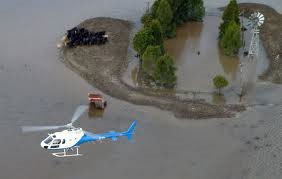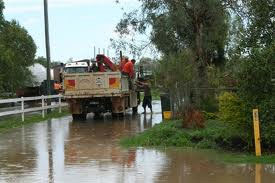The first thing search engines have to do in order to function is to make a local database of, basically, the Internet. Early search engines just indexed keywords and titles of pages, but contemporary search engines index all of the text on every page, as well as a great deal of other data about that page’s relation to other pages, and in some cases all or a portion of the media available on the page as well. Search engines need to index all of this information so that they can run searches on it efficiently, rather than having to run around the Internet every time a search query is sent.
1. Bing
 Bing is Microsoft's attempt at unseating Google. Bing used to be MSN search until it was updated in summer of 2009. Touted as a 'decision engine', Bing tries to support your researching by offering suggestions in the leftmost column, while also giving you various search options across the top of the screen. Things like 'wiki' suggestions, 'visual search', and 'related searches' might be very useful to you. Bing is not dethroning Google in the near future, no. But Bing is definitely worth trying.
Bing is Microsoft's attempt at unseating Google. Bing used to be MSN search until it was updated in summer of 2009. Touted as a 'decision engine', Bing tries to support your researching by offering suggestions in the leftmost column, while also giving you various search options across the top of the screen. Things like 'wiki' suggestions, 'visual search', and 'related searches' might be very useful to you. Bing is not dethroning Google in the near future, no. But Bing is definitely worth trying.2. Mahalo
Mahalo is the one 'human-powered' search site in this list, employing a committee of editors to manually sift and vet thousands of pieces of content. This means that you'll get fewer Mahalo hit results than you will get at Bing or Google. But it also means that most Mahalo results have a higher quality of content and relevance (as best as human editors can judge).
Mahalo also offers regular web searching in addition to asking questions. Depending on which of the two search boxes you use at Mahalo, you will either get direct content topic hits or suggested answers to your question.
Try Mahalo. You might like it enough to even become a editor there.
Mahalo also offers regular web searching in addition to asking questions. Depending on which of the two search boxes you use at Mahalo, you will either get direct content topic hits or suggested answers to your question.
Try Mahalo. You might like it enough to even become a editor there.
3. Dogpile
Years ago, Dogpile was the fast and efficient choice before Google. Things changed, Dogpile faded into obscurity, and Google became king. But today, Dogpile is coming back, with a growing index and a clean and quick presentation that is testimony to its halcyon days. If you want to try a search tool with pleasant presentation and helpful crosslink results, definitely try Dogpile
Webopedia is one of the most useful websites on the World Wide Web. Webopedia is an encyclopedic resource dedicated to searching techno terminology and computer definitions. Teach yourself what 'domain name system' is, or teach yourself what 'DDRAM' means on your computer. Webopedia is absolutely a perfect resource for non-technical people to make more sense of the computers around them.
5. Google
Google is the undisputed king of 'spartan searching'. While it doesn't offer all the shopping center features of Yahoo!, Google is fast, relevant, and the largest single catalogue of Web pages available today. Make sure you try the Google 'images', 'maps' and 'news' features... they are outstanding services for locating photos, geographic directions, and news headlines.




 Floods have an impact on entire communities, however , many people (living or working on higher ground) may not be directly affected, and would LOVE to be able to help, but are not sure how.
Floods have an impact on entire communities, however , many people (living or working on higher ground) may not be directly affected, and would LOVE to be able to help, but are not sure how. There are many many thing that could be assistance to the Qld flood victims – many communities have been devastated and some have lost everything, so pretty much anything which might help them get started on the road back to a normal life could be of benefit. It’s not only goods and items that are of help though. offers of a helping hand, a bit of a break, or even a shoulder to cry on can help a lot. Often very simple things can make a big difference as it reminds the flood victims that they are not alone, people really do care, and that their lives will return to normal even if it takes time.
There are many many thing that could be assistance to the Qld flood victims – many communities have been devastated and some have lost everything, so pretty much anything which might help them get started on the road back to a normal life could be of benefit. It’s not only goods and items that are of help though. offers of a helping hand, a bit of a break, or even a shoulder to cry on can help a lot. Often very simple things can make a big difference as it reminds the flood victims that they are not alone, people really do care, and that their lives will return to normal even if it takes time.